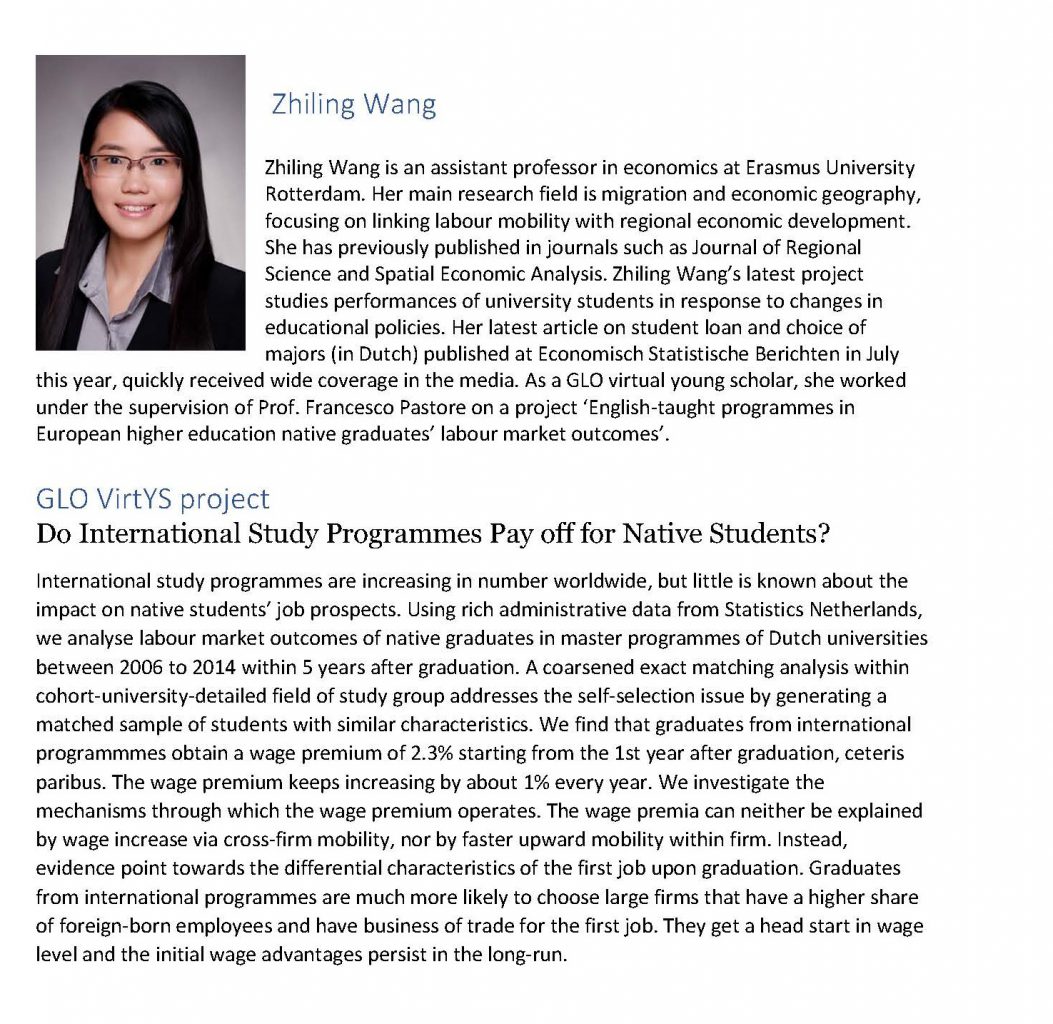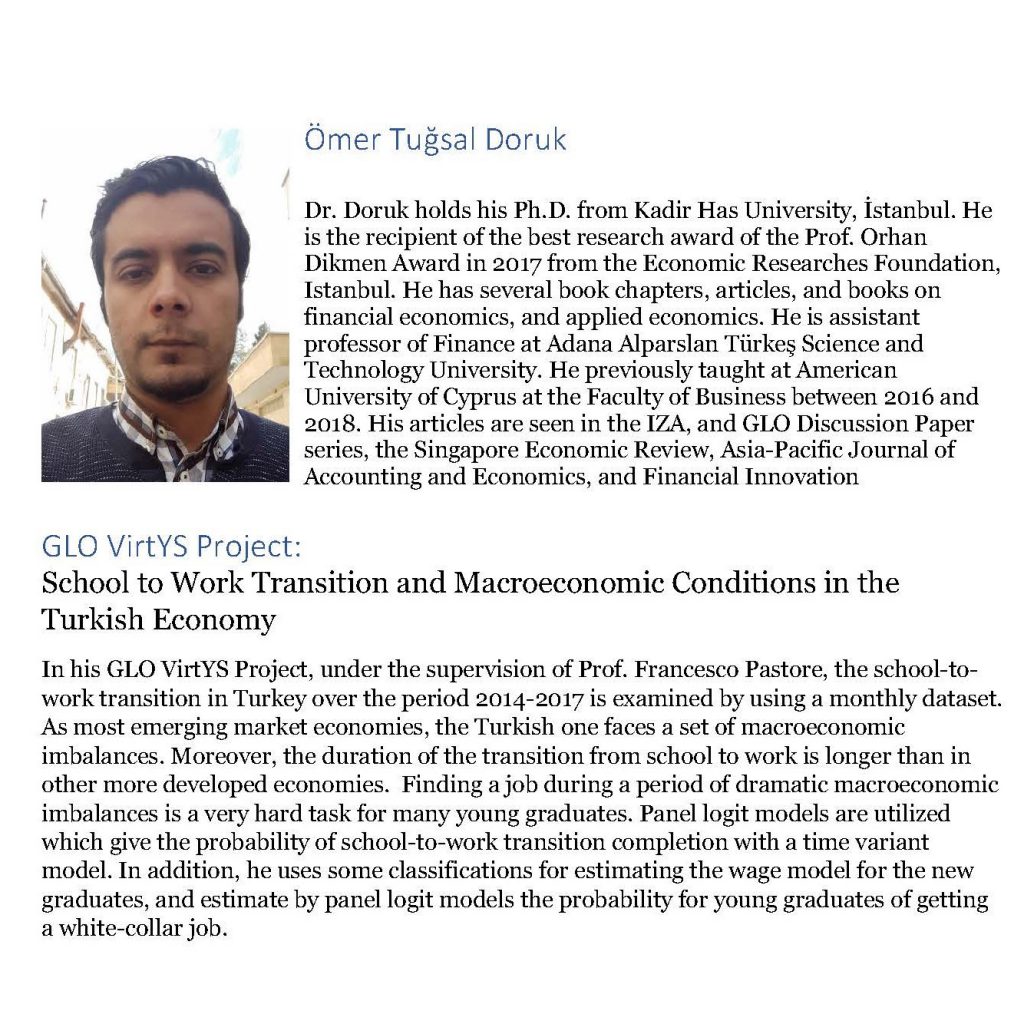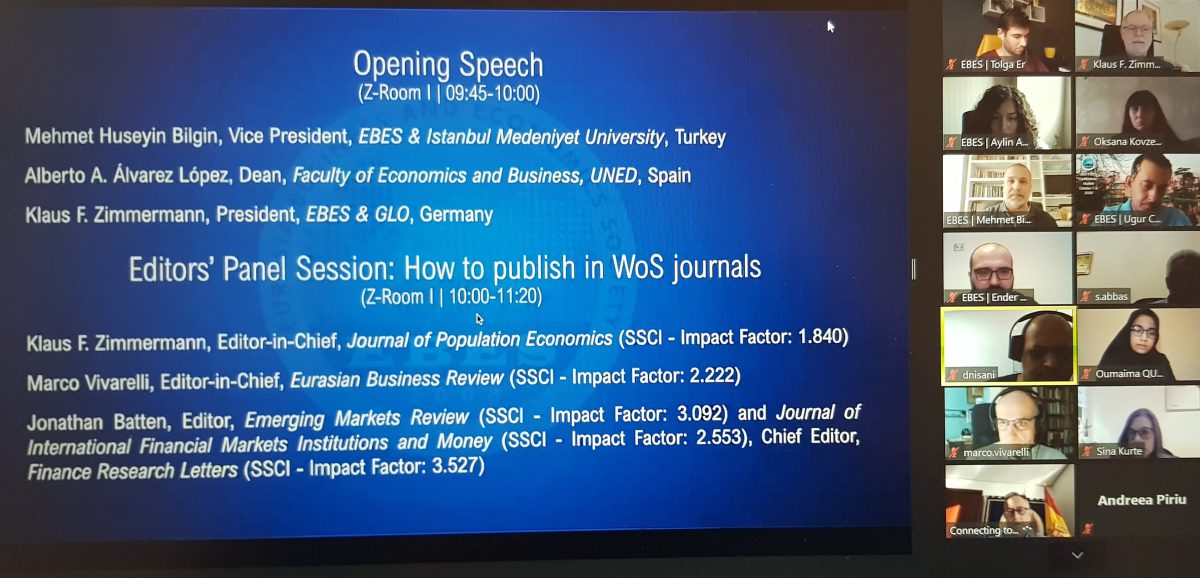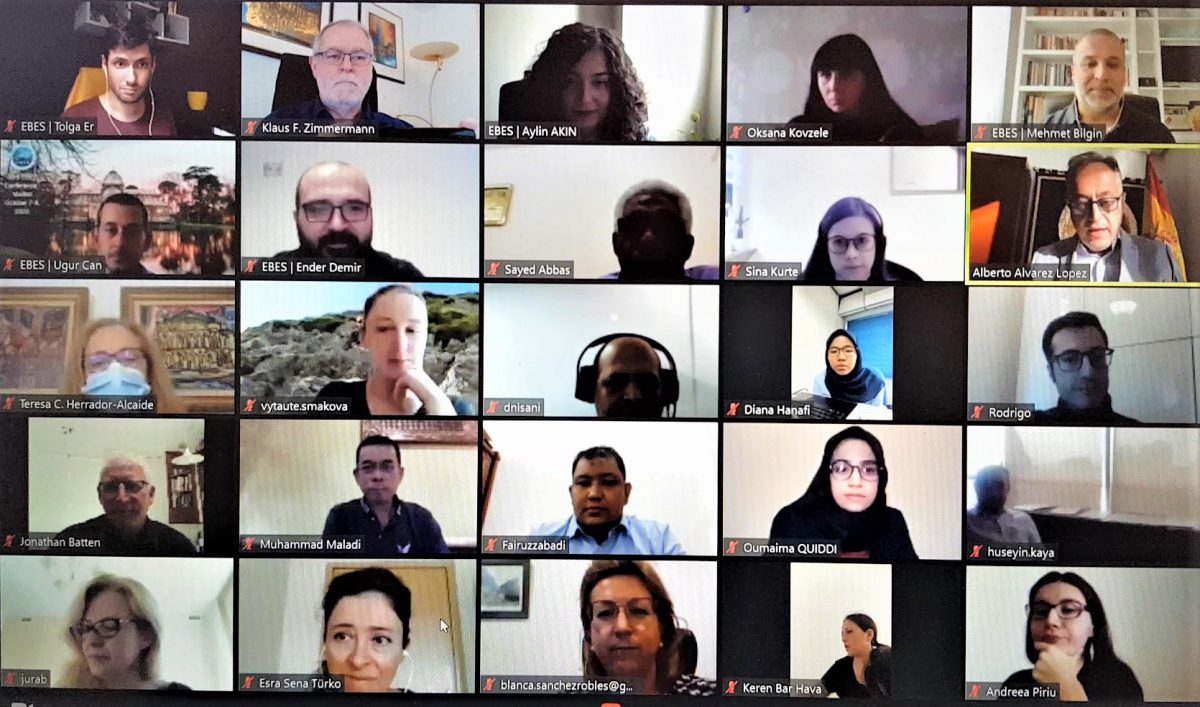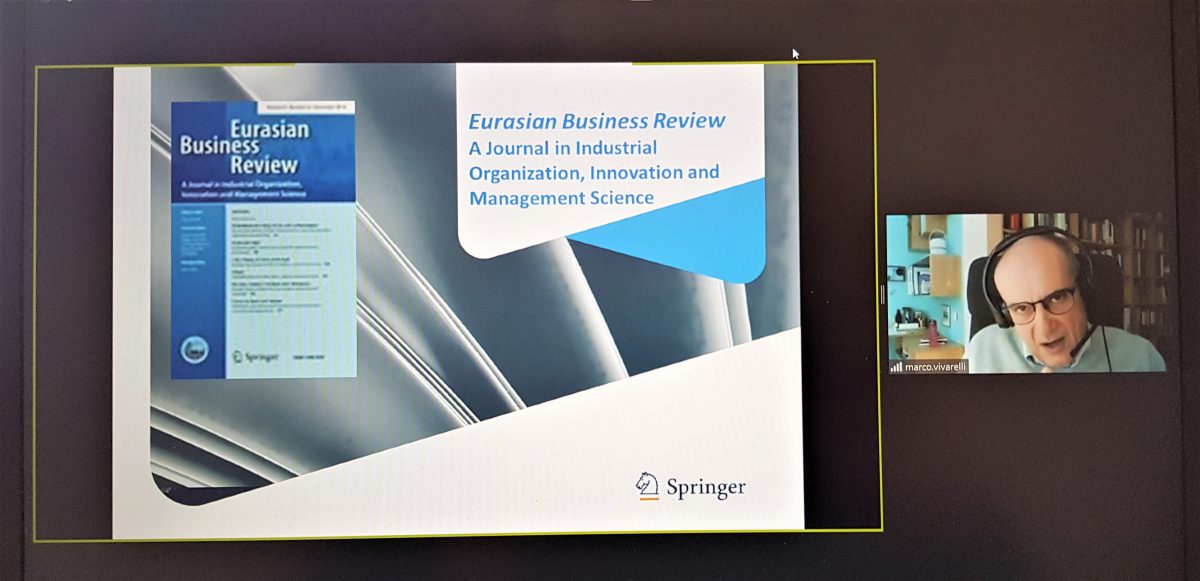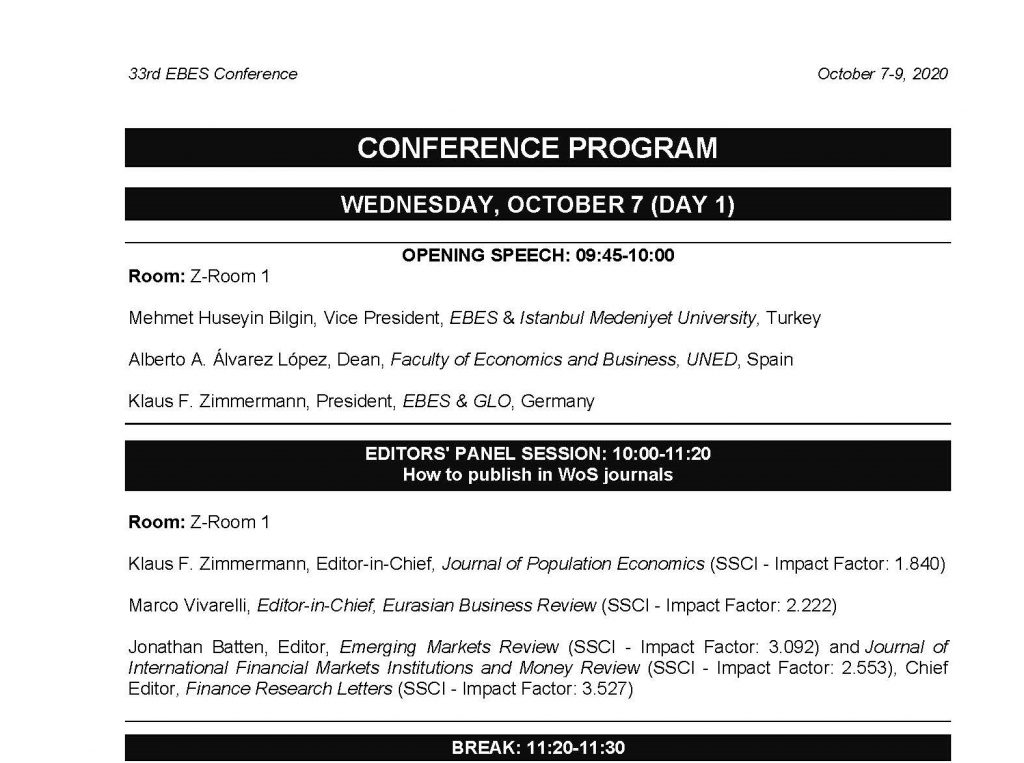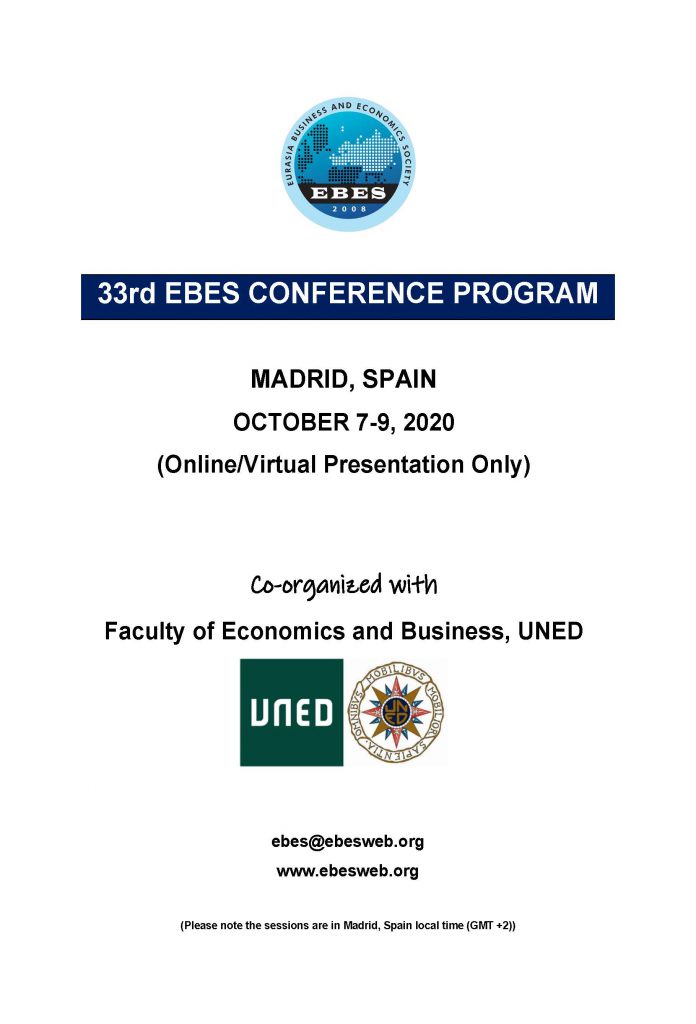A new GLO Discussion Paper studies the motherhood penalty on the Indian labor market and how it varies across the different cultural values pertaining to different family settings, regions and workplaces.
The Global Labor Organization (GLO) is an independent, non-partisan and non-governmental organization that functions as an international network and virtual platform to stimulate global research, debate and collaboration.

GLO Discussion Paper No. 673, 2020
Motherhood and labor market penalty: a study on Indian labor market – Download PDF
by Sarkhel, Sukanya & Mukherjee, Anirban
GLO Fellow Anirban Mukherjee
Author Abstract: Labor market penalty associated with motherhood (in short, motherhood penalty) is an important issue related to gender equality in the society. Our paper is an attempt to empirically examine the extent of motherhood penalty in the context of Indian labor market. We use a nationally representative longitudinal survey data to address this question. We find negative relationship between motherhood and labor market outcomes for women. Besides using conventional measures of motherhood such as number of children, we also devise a new measure of motherhood relevant for our research question. The survey asked the respondents about their desired number of children. We deduct the desired number of children from the actual number of children to come up with a new measure of motherhood that we call extra children. We reckon that often women’s decision to join specific occupations or labor markets in general often internalize their desired number of children; the number they originally planned for. Hence, it is the number of children above the desired number which leads to stronger negative outcomes in the labor market. We find that the extra children variable has a stronger negative impact on women’s labor market outcomes than the conventional measures. We also examine how the extent of motherhood penalty varies across different cultural values pertaining to different family settings, regions and workplaces. We find, depending on different cultures prevailing in the places of residence or workplace, motherhood penalty gets either mitigated or exacerbated. Our results remain robust to alternative measures of motherhood.

GLO Discussion Papers are research and policy papers of the GLO Network which are widely circulated to encourage discussion. Provided in cooperation with EconStor, a service of the ZBW – Leibniz Information Centre for Economics, GLO Discussion Papers are among others listed in RePEc (see IDEAS, EconPapers). Complete list of all GLO DPs – downloadable for free.
Ends;




